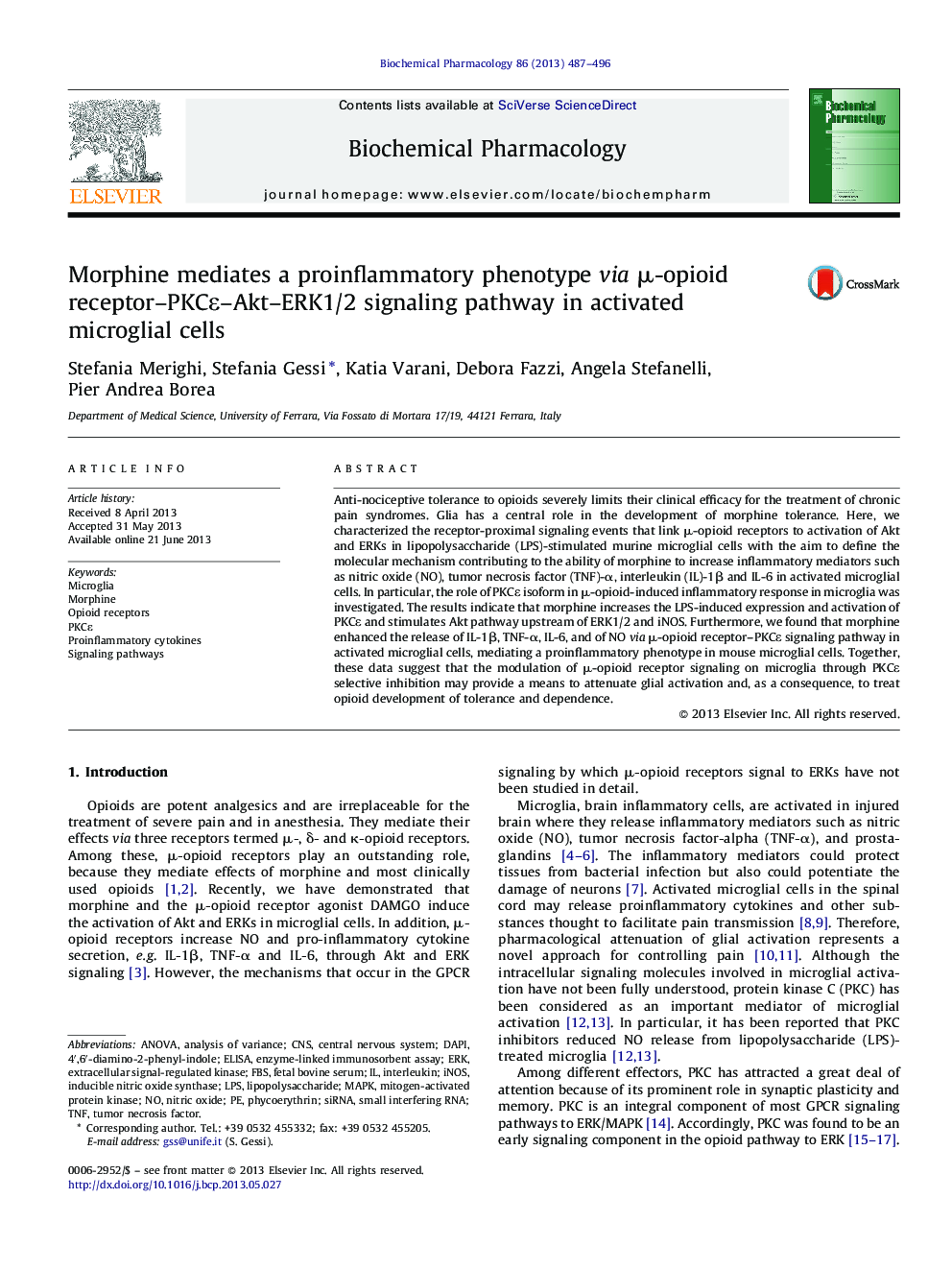| Article ID | Journal | Published Year | Pages | File Type |
|---|---|---|---|---|
| 2512692 | Biochemical Pharmacology | 2013 | 10 Pages |
Anti-nociceptive tolerance to opioids severely limits their clinical efficacy for the treatment of chronic pain syndromes. Glia has a central role in the development of morphine tolerance. Here, we characterized the receptor-proximal signaling events that link μ-opioid receptors to activation of Akt and ERKs in lipopolysaccharide (LPS)-stimulated murine microglial cells with the aim to define the molecular mechanism contributing to the ability of morphine to increase inflammatory mediators such as nitric oxide (NO), tumor necrosis factor (TNF)-α, interleukin (IL)-1β and IL-6 in activated microglial cells. In particular, the role of PKCɛ isoform in μ-opioid-induced inflammatory response in microglia was investigated. The results indicate that morphine increases the LPS-induced expression and activation of PKCɛ and stimulates Akt pathway upstream of ERK1/2 and iNOS. Furthermore, we found that morphine enhanced the release of IL-1β, TNF-α, IL-6, and of NO via μ-opioid receptor–PKCɛ signaling pathway in activated microglial cells, mediating a proinflammatory phenotype in mouse microglial cells. Together, these data suggest that the modulation of μ-opioid receptor signaling on microglia through PKCɛ selective inhibition may provide a means to attenuate glial activation and, as a consequence, to treat opioid development of tolerance and dependence.
Graphical abstractFigure optionsDownload full-size imageDownload as PowerPoint slide
